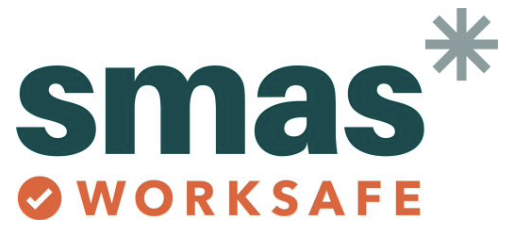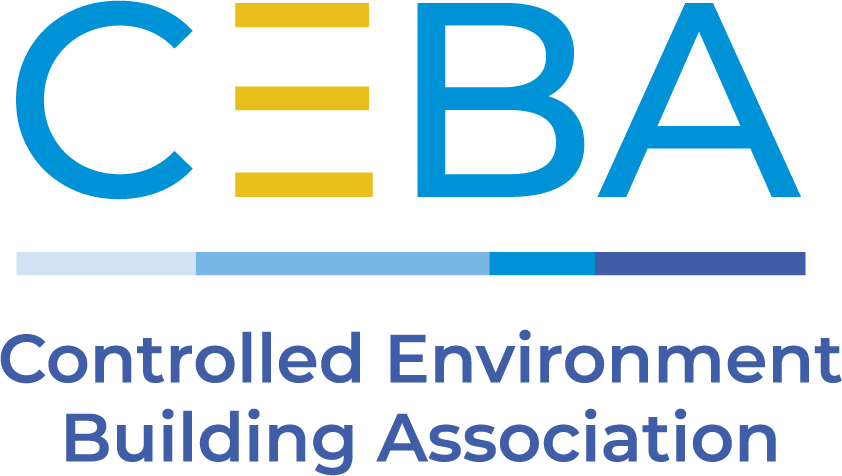Conditions of Sale (v.6 Apr 18)
General
1. Definitions:
- Agreement: The contract formed between the parties by acceptance of the Tender.
- Documents: The documents referred to in the Tender or subsequently agreed by the parties in writing.
- Company: The P&M Group Limited and any of its trading divisions.
- Customer: The firm, person, body or company named as such in the Tender.
- Goods Materials, goods or other items provided for the Works.
- Price: The sum included in the acceptance of the Tender. The price will be deemed to be a lump sum unless stated otherwise in the Tender.
- Parties: Where reference is made to the party or parties in this Agreement this shall mean either the Customer and/or the Company.
- Period: The duration agreed by the parties for completion of the works on Site or if no duration is agreed within the period notified by the Company.
- Site: The location where the works are to be undertaken.
- Tender: The Company’s tender, estimate or quotation issued to the Customer.
- Variation: As paragraph 17.
- Works: The scope of works and included in the Tender or as amended by a variation.
2. Unless expressly agreed in writing, nothing in the Documents shall override or modify these Conditions.
3. The Customer may appoint a person to act as his representative for the purposes of this Agreement. Where so appointed all notices, instructions and correspondence in relation to this Agreement shall be issued by representative on behalf of the Customer. The Company will address all notices and other communications to the representative.
4. All instructions, applications, notices, comments and correspondence to be made or given under this Agreement shall be given in writing by first class post, facsimile or by email. All such communications issued by post by the Customer regarding this Agreement shall be addressed to the Company’s main office in Gloucester. The Company shall issue all such communications by post to the Customer to an agreed address save where a representative is appointed. Where a representative is so appointed the Company shall issue all communications by post to the representative.
Obligations
5. The Company shall carry out and complete the Works in a proper and workmanlike manner and in accordance with the Tender, any Documents and these Conditions.
6. Where the Company is to design or complete the design of the Works or select materials or goods. Such design or selection will be carried out with reasonable skill and care.
7. The Customer shall provide in due time to the Company in writing further drawings, information and instructions that the Company requires in order to carry out the Works within the Periods stated in the Tender.
8. The Customer may give written reasonable instructions to the Company. Where such instructions are given orally they shall only be of effect when confirmed in writing to the other party either by the Customer or by the Company.
Completion
9. The Works may commence immediately following acceptance of the Tender, or on a date agreed by the parties and confirmed in writing by the Company, and shall be completed within the Period. Access to the Site will be provided by the Customer to enable the Works to be completed within Period.
10. If the Company is delayed by the Customer for any reason beyond the Company’s control the parties shall agree an extension of time to the Period.
11. The Company shall notify in writing or by issue of its completion notice the date when in its opinion the Works are complete. If not dissented from in writing by the Customer within 7 days of issue of the notice, completion shall have deemed to have taken place. The notice of dissent shall set out the reasons for dissent to be valid.
12. The Company shall make good any defects notified by the Customer arising from design (other than design furnished by the Customer), materials and/or workmanship not being in accordance with this Agreement which appear in the defects rectification period. The defects rectification period is twelve months from the date of completion.
Attendances
13. All facilities to be provided by the Customer are detailed in the Documents.
Indemnity & Insurance
14. The Company shall indemnify and save harmless the Customer from and against all claims, costs, losses, damages and expenses in respect of loss damage or injury whatsoever and whensoever arising to property or persons in consequence of defective design (other than design furnished by the Customer) materials or workmanship or of any negligence of the Company his servants or agents in or about the execution of the Works.
15. The Company shall take out and maintain the following insurances until the Works are complete unless otherwise stated:
- a. Where required by the Customer a contractor’s all risk policy for the full reinstatement value of the Works.
- b. A public liability insurance policy for death or injury to people and damage to property until expiry of the defects rectification period for £10,000,000.
- c. Where the Company is responsible for the design of the Works a Professional Indemnity Insurance policy for £5,000.000 and providing that it available at commercially reasonable rates maintaining such insurance for 6 years after the works are complete.
Where the Company is not obliged to take out a contractor’s all risk policy the Customer will be responsible for taking out and maintaining structure and contents insurance for the Works.
16. If, prior to completion of the Works, loss or damage occurs to the Works from a risk covered by the Company’s all risk policy written notice shall be given to the Customer and insurers. Unless agreed otherwise the Company, following any inspection required by insurers, shall remove and dispose of debris, carry out restoration repair and replacement and continue to complete the Works. Insurance monies will be paid to the Customer who will in interim payments reimburse the Company for the cost of debris removal and restoration, repair and replacement.
Title and Risk
17. Not used.
18. Title to the Goods shall not pass to the Customer until the Company has received payment in full (in cash or cleared funds) for:
- a. the Goods; and
- b. any other goods or services that the Company has supplied to the Customer in respect of which payment has become due.
19. Until title to the Goods has passed to the Customer, the Customer shall:
- a. hold the Goods on a fiduciary basis as the Company’s bailee;
- b. store the Goods separately from all other goods held by the Customer so that they remain readily identifiable as the Company’s property;
- c. not remove, deface or obscure any identifying mark or packaging on or relating to the Goods;
- d. maintain the Goods in satisfactory condition and keep them insured against all risks for their full price from the date of delivery;
- e. notify the Company immediately if it becomes subject to any of the events listed in clause 34(a); and
- f. give the Company such information relating to the Goods as the Company may require from time to time,
20. If before title to the Goods passes to the Customer the Customer becomes subject to any of the events listed in clause 34(a), or the Company reasonably believes that any such event is about to happen and notifies the Customer accordingly, and without limiting any other right or remedy the Company may have, the Company may at any time require the Customer to deliver up the Goods and, if the Customer fails to do so promptly, enter any premises of the Customer or of any third party where the Goods are stored in order to recover them.
Variations
21. The Customer may vary the Works in writing by way of addition, omission, substitution, or change in sequence, standard, type or quality of the Works. No such variation shall in any way invalidate this Agreement. Variations shall be valued in accordance with this Agreement.
22. The value of any variation made in writing by the Customer shall wherever possible be agreed in advance and a price agreed before the varied works proceed. Where this is not possible the variation shall be valued by the Company by reference, where relevant, to the prices included in the Tender. Account should be taken of any loss and/or expense arising directly from the variation on the regular progress of the works, and/or delay caused by the Customer and/or delay which results from adverse weather conditions (all deemed to be variations).
23. The provisions of paragraph 18 are without prejudice to any other rights or remedies which the Company may possess.
Payments
24. Payment is made of the Price, adjusted as follows:
- a. Where the contract is a lump sum as adjusted by the value of variations.
- b. Where the contract is measure and value by re-measurement of the Works having regard, where relevant, to the prices in the Tender. Such re-measurement is to include the value of variations.
- c. Where the contract is valued on daywork at the rates included in the Tender.
25. Payments to the Company shall be made at the intervals stated in the Tender, or where none are stated monthly. The first due date for payment is the last day of the interval or month (or stage) in which the works commenced on Site. Subsequent payments fall due on the last day of each successive interval or month (or stage). The Company shall submit an invoice or payment application (the Payment Notice) no later than 5 days after each due date to the Customer for the value of the Works which have been completed and, where applicable, the value of materials manufactured and ready for delivery and/or which have been delivered to the Site. Sums previously paid shall be deducted from this total to arrive at the sum being invoiced or applied for.
26. Where the Company has not given a Payment Notice in accordance with paragraph 25 the Customer may at any time after the 5 day period referred to in paragraph 21 give a Payment Notice (the Default Payment Notice) to the Company stating the sum the Customer considers to be due to him at the relevant date. The Default Payment Notice shall state the basis on which the amount is calculated and include details of the calculation.
27. Subject to any Pay Less Notice to be given by the Customer under paragraph 30 the notified sum to be paid by the Customer shall be either (i) the sum stated as due in the Payment Notice, or where no Payment Notice is issued by the Company (ii) the sum stated as due in the Default Payment Notice.
28. Where a Pay Less Notice is given the payment to be made on or before the Final Date for Payment shall not be less than the amount stated in the Pay Less Notice.
29. The Final Date for Payment shall be as included in the Tender, if no period is indicated or otherwise agreed the final date for payment shall be 30 days after the due date.
30. Not later than 5 days before the Final Date for Payment of an amount due under the contract, the Customer may give written notice (the Pay Less Notice) to the Company which shall specify the amount the Customer intends to pay less than the sum stated as due from him in the Payment Notice or the Default Payment Notice, as the case may be. The Pay Less Notice shall specify both the sum the payer considers to be due to the payee at the date the notice is given and basis on which the amount is calculated and include details of the calculation.
31. If the Customer fails to pay the amount due, or any part of it, by the final date for payment the Customer shall pay simple interest on the overdue amount at the rate of 5% per annum above the official Bank Rate of the Bank of England applicable at the final date for payment until such payment is made.
32. All rates and prices stated within the Tender and/or Agreement are exclusive of VAT unless expressly stated otherwise.
Adjudication
33. Either party may refer and dispute or difference arising under this Agreement to adjudication in accordance with the Scheme for Construction Contracts (England & Wales) Regulations 1998. The adjudicator nominating body shall be the Royal Institution of Chartered Surveyors.
Termination
34. In the event that a party is in material breach, which he fails to remedy within 10 days of a written warning from the other party, or if it becomes subject to any of the events listed in clause 34(a) the other party shall be entitled to terminate the Company’s employment under this Agreement. Thereafter the terminating party shall be entitled to recover from the other party any resultant loss or damage incurred by the terminating party incurred as a result of such termination.
- a. Insolvent within the meaning of section 113 of the Housing Grants Construction and Regeneration Act 1996.
Third Party Rights
35. Notwithstanding any other provisions of this Agreement nothing contained within it confers or purports to confer any right to enforce any of its terms on any person who is not a party to it.
Law
36. This Agreement shall be construed and operated as a contract under the law of England and Wales and the Courts of England and Wales shall have exclusive jurisdiction in respect of any dispute arising out of or in connection with the same.
We are experts in cold storage construction, firewalls, data-centres and single envelope cladding.
Brochures
We’ve put together some brochures to help you decide on the right company to choose for your next project.








